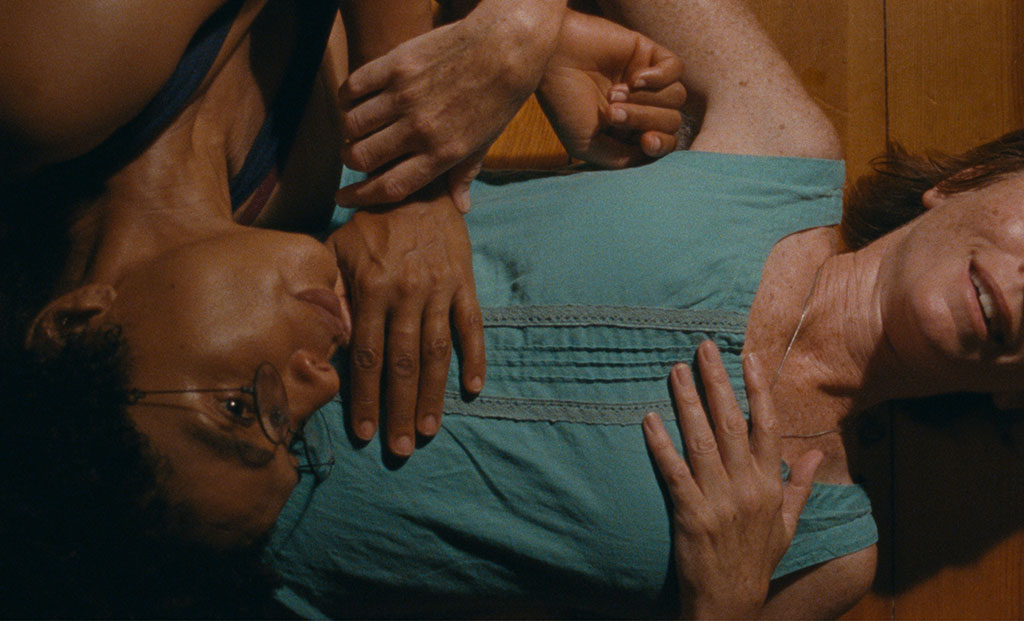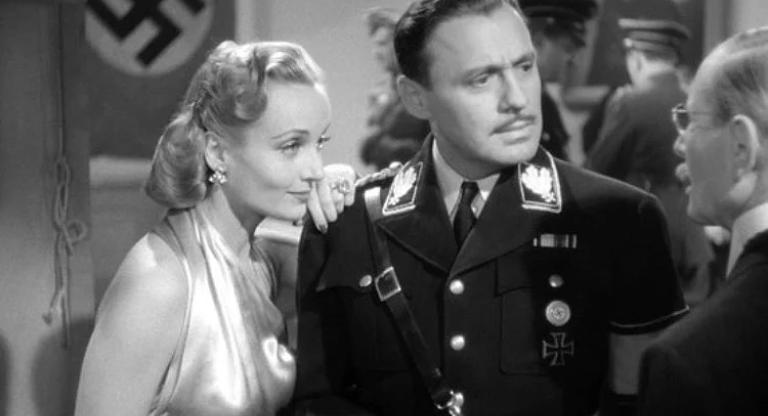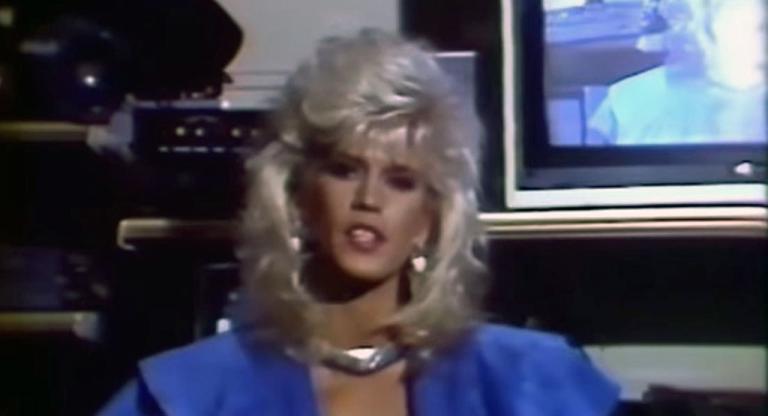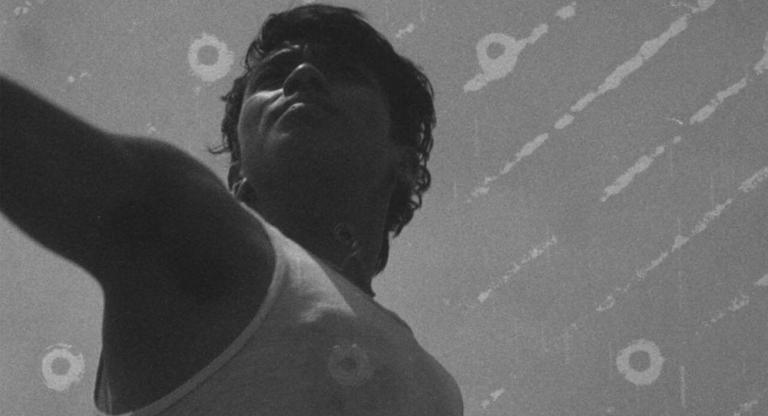“Every moment in my life is hell,” groans the owlish 11-year-old Lacy (Zoe Ziegler) to her mother, Janet (Julianne Nicholson), an eccentric and exhausted acupuncturist. “I’m actually pretty unhappy too,” Janet replies, a stolid presence wrestling with her daughter’s clinginess. Janet Planet (2023), the debut feature by the American playwright Annie Baker, observes a sticky summer in 1991, with the duo attempting to keep their footing amid fluctuating company.
Baker’s breakthrough was the 2014 Pulitzer Prize-winning drama The Flick, about three ushers working in a dilapidated cinema. With Janet Planet, she reprises some of her preoccupations with fidelity, labor, and mental welfare, all with a vigilance for the physical and emotional architecture of her scenes. Janet and Lacy inhabit an idyllic, woodsy cabin in rural Western Massachusetts—high-ceilinged and sinuous, a verifiable castle for a mother and daughter, and the revolving door of lovers and friends whom Lacy loathsomely observes. “The thing that actually made me think, I want to write this movie, was picturing evaporating your mother’s boyfriend with your brain,” Baker told The New Yorker. The acme of Baker’s project is this balance of affection for one’s mother and disenchantment with her judgment, a crushing polarity for a friendless pre-adolescent such as Lacy.
Baker’s images denote a muggy solitude that is neither cloying nor piteous: a tick burning at the hot end of a match; girls tucked in the corner of a shopping mall reading romance novels; cultish outdoor theater; clay baking; henna shampoo and jars of infused oils. Lacy is maternal with her trinkets, adorning them with chocolate wrappers for hats, pleated paper for blankets, spoonfuls of dirt for dinner—a tenderness certainly borrowed from Janet, though not belabored upon.
Last week, Film at Lincoln Center screened 17 films handpicked by Baker—all at the intersection of theater and cinema—called “Angels and Puppets: The Stage on Screen,” which featured titles such as All That Jazz (1979), Original Cast Album: Company (1970), The Story of the Last Chrysanthemum (1939), A Tale of Winter (1992), and The Magic Flute (1975). I corresponded with Baker over email about Janet Planet, process and influence, evading nostalgia, and a scrapped papier mâché head of George H.W. Bush that was originally featured in the film.
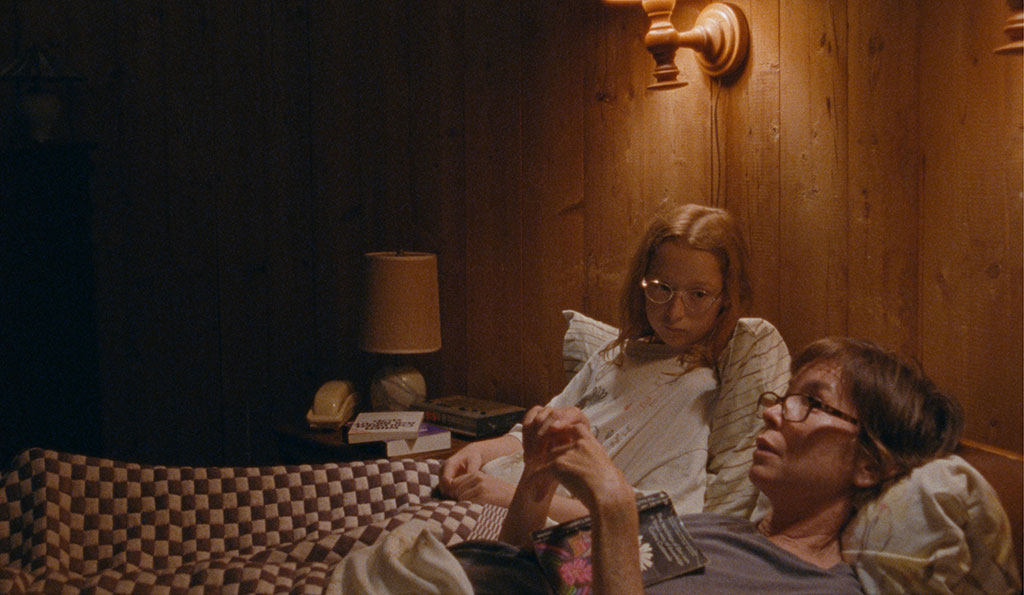
Saffron Maeve: Was there a particular moment in your career when you realized you wanted to stretch your legs into filmmaking?
Annie Baker: I loved movies as a child and watched them all the time. When I visited my father in New York City I would go see two to three movies at Film Forum in one day. I thought about filmmaking all the time, but I also thought it would never be in the cards for me. Four years ago I actually said out loud that I probably would never make movies in this lifetime, but maybe in the next one, and then shortly after that I wrote the screenplay for Janet Planet.
SM: What sorts of films have you found yourself drawn to in your life?
AB: I love so many different types of movies. I saw Furiosa [2024] and Evil Does Not Exist [2023] in the past month and liked them both a lot. I’ve noticed I really fall for movies with no score, or movies with a score that’s really aware and present of itself and letting you be aware of its presence too. I also tend to fall for movies that have some kind of religious or spiritual questioning in them.
SM: What were some of the touchstones (cinema or otherwise) for Janet Planet?
AB: I just looked up the word “touchstone” because I hear it often and was suddenly unsure about what it meant… It turns out it’s a “test or criterion for determining the quality or genuineness of a thing.” This makes me feel better about being reluctant to talk about any influences, 1) because I think most influences are unconscious and 2) I think you have to be really careful while making art not to be making comparisons. When I’m in the middle of writing or shooting I’m trying hard not to think too hard, and I’m certainly not trying to be like anyone else. That said, my DP and I looked at a lot of paintings and watched a lot of movies together to get excited and start conversations. I also constantly think about Thomas Mann and how he moves time around.
SM: Do you find directing theater versus directing film any different?
AB: They’re so different for me. I liked how collaborative movie directing was; it really felt like my 1st AD Laura [Klein] and my DP Maria [von Hausswolff] were directing the movie as much as I was. As hard as it was that the schedule was fast and furious, there’s something about the fast and furious quality that I love.
SM: How was the outdoor puppet show that Janet and Lacy attend conceived in the writing process? Is there a movement of cultish puppet theater I’m unaware of?
AB: The idea and outline of the puppet show was conceived in the writing process and felt like an integral part of the movie early on. I started designing it and structuring it with Jeremy Louise Eaton, our puppeteer and theater co-director, almost a year before we started shooting. A number of Jeremy’s puppets and the work she’d made with Double Edge Theatre company were very inspirational for me, and some of the music and puppets in the movie are from Jeremy’s work with Double Edge before I even met her. Other sections I wrote or we conceived together and Raky Sastri, a dear musician friend of mine, wrote additional music for the show. There’s a real 45-minute show we all made together and only five or so minutes of it are in the movie. We rehearsed for a very long time before prep even started. There was a giant George Bush puppet who threw candy and paper airplanes at the audience in our first cut of the movie.
SM: Something that has endeared me to your theater work—and is deeply felt in Janet Planet—is how you conceive a type of memory that isn’t overrun by nostalgia. What is your relationship to nostalgia, personally and professionally?
AB: Thanks for saying that… You know, I think I feel nostalgia very rarely! I definitely don’t feel nostalgic for childhood. There are some moments in my adult life I’d like to briefly revisit, but I never ever want to go back in time.
SM: Do you see yourself pursuing filmmaking more regularly after Janet Planet?
AB: Yes, definitely. I have a new project that I can’t wait to make, despite how difficult it can be. I learned so much making my first movie and there are so many other things I want to try out now in this medium.
SM: Relatedly, is there a play of yours you’d like to see adapted into a film?
AB: Absolutely not! There’s something about this idea that I find nightmarish.
